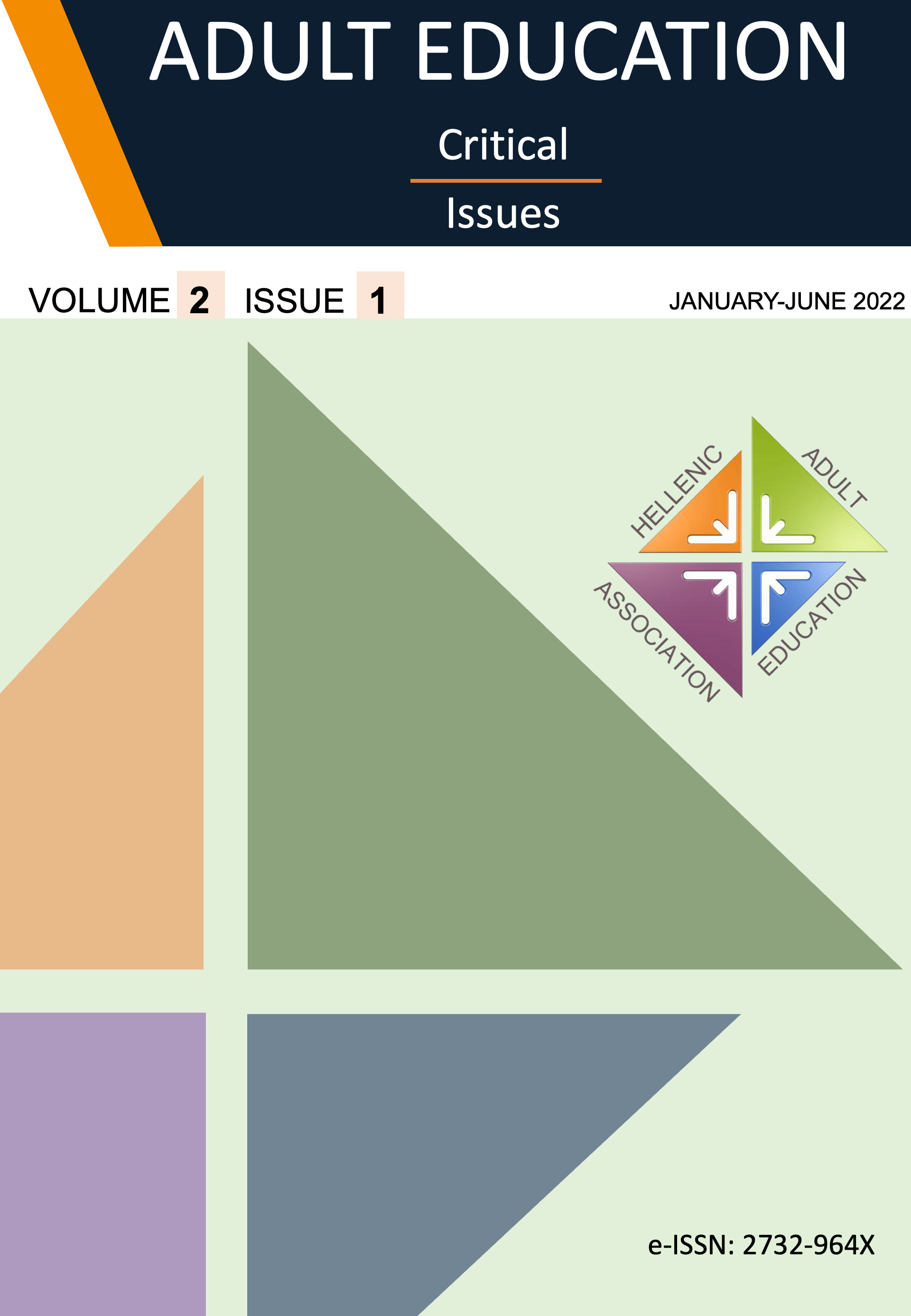Learning Between Two Worlds: The known and the not-foreknow
Abstract
There is a fundamental assumption that I have held about the role adult learning plays in society. That the sinuous stuff between personal and societal transformation is made up of the connections that learning makes. This assumption has been shaken over the as the past two years, as ruptures of civil unrest and the cloud of the global Pandemic have revealed weaknesses in the power of learning that makes the vital connection between the personal and societal, transformative. I wonder more than ever how to reveal and make real the learning that connects the two worlds I feel we live in. The world that is known and that continues to be reproduced with all of its inequities and exclusions and the world not- foreknown that wants to be different, liberating the creative potential that learning unfolds.
In this writing I offer a personal experience of penetrating the underlying assumptions I have about learning in between two worlds. I practice a method that I have created, in-scending, a practice of staying close to undergoing experience (Nicolaides, Forthcoming; Yorks & Nicolaides, 2013), experiencing experience while experiencing experience would be another way to describe what Dewey (1934) meant. In-scend(ing) is a word of my own making. It is the felt sense of moving beneath experience to undergo it. A tool of generative knowing (Nicolaides, Forthcoming; Nicolaides, 2015).
I explore the arising of awareness that emerged through the practice of in-scending, beneath an inquiry about my relationship to being secure in these times of insecurity. Undergoing is a less known aspect of reflection from Dewey’s pragmatist philosophy of learning through experience. Dewey discusses a necessary aspect of learning from experience in terms of undergoing an experience (Nicolaides, & Lim, 2020). Undergoing describes the felt sense of experiencing an experience. Having an experience is necessary for learning, and most assuredly for transformative learning to take shape though the meaning-making process that includes reflection on experience, and going beneath the experience with head, heart, and body. In this short offering I reveal what I learn by inquiring beneath what it means for me to be secure in times of insecurity. I do so by reviving Dewey’s (1934) concept of undergoing experience while also risking the conventional epistemologies that undergird transformative learning to consider a way of knowing that begin beneath experience (Nicolaides, 2015).
Article Details
- Come citare
-
Nikolaides, A. (2022). Learning Between Two Worlds: The known and the not-foreknow. Adult Education Critical Issues, 2(1), 112–117. https://doi.org/10.12681/aeci.30862
- Fascicolo
- V. 2 N. 1 (2022): January - June 2022
- Sezione
- Forum

TQuesto lavoro è fornito con la licenza Creative Commons Attribuzione 4.0 Internazionale.
Authors who publish with this journal agree to the following terms:
- Authors retain copyright and grant the journal right of first publication with the work simultaneously licensed under a Creative Commons Attribution License that allows others to share the work with an acknowledgement of the work's authorship and initial publication in this journal.
- Authors are able to enter into separate, additional contractual arrangements for the non-exclusive distribution of the journal's published version of the work (e.g., post it to an institutional repository or publish it in a book), with an acknowledgement of its initial publication in this journal.
- Authors are permitted and encouraged to post their work online (e.g., in institutional repositories or on their website) prior to and during the submission process, as it can lead to productive exchanges, as well as earlier and greater citation of published work (See The Effect of Open Access).



